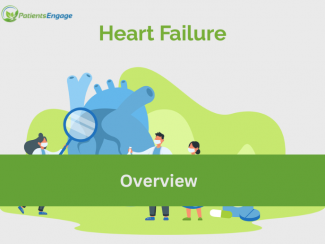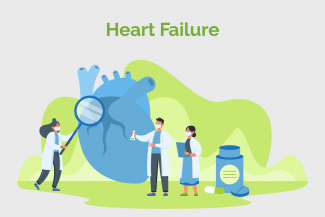
What is Heart Failure (HF)? Is it the same as congestive heart failure?
Heart Failure refers to the inability of the heart to function normally. About 8-10 million patients in India are estimated to be suffering from Heart failure – about 1% of the adult population. A common misconception is that heart failure means that the heart stops beating. In fact, it means that the heart cannot pump blood adequately for circulating throughout the body. Since the blood flow to all the organs in our body depend on heart pumping/functioning normally, heart failure leads to several repercussions in several major organs in our body.
There are several terms for Heart Failure such as congestive heart failure, congestive cardiac failure, pulmonary edema, etc. When the heart fails to pump blood forward, it accumulates in the lungs leading to pulmonary (lung) edema or lung congestion which leads to severe breathlessness.
The heart failure content is based on a FAQ interview with Mumbai-based cardiologist, Dr Nihar Mehta

CORE COMMITTEE MEMBER: Apex Committee of Research, Jaslok Hospital
CONDUCT BLOOD PRESSURE CLINIC & HEART FAILURE CLINIC At Jaslok Hospital















